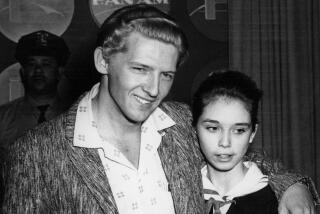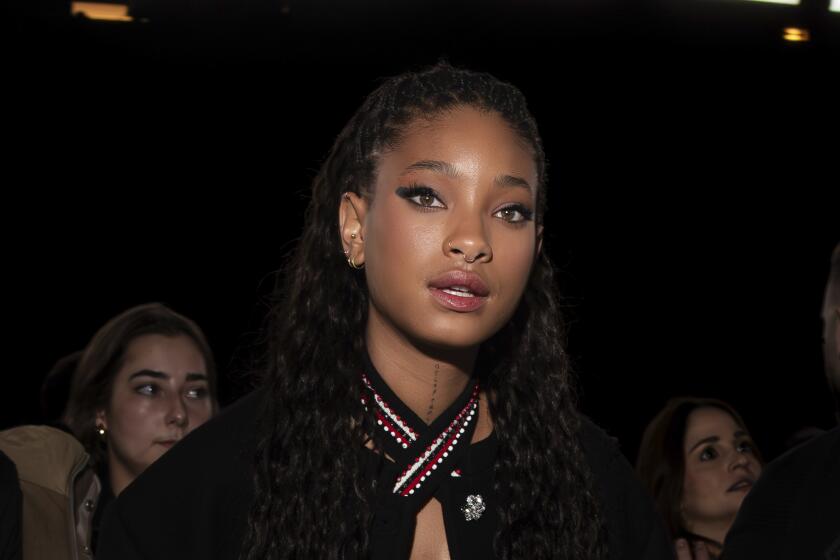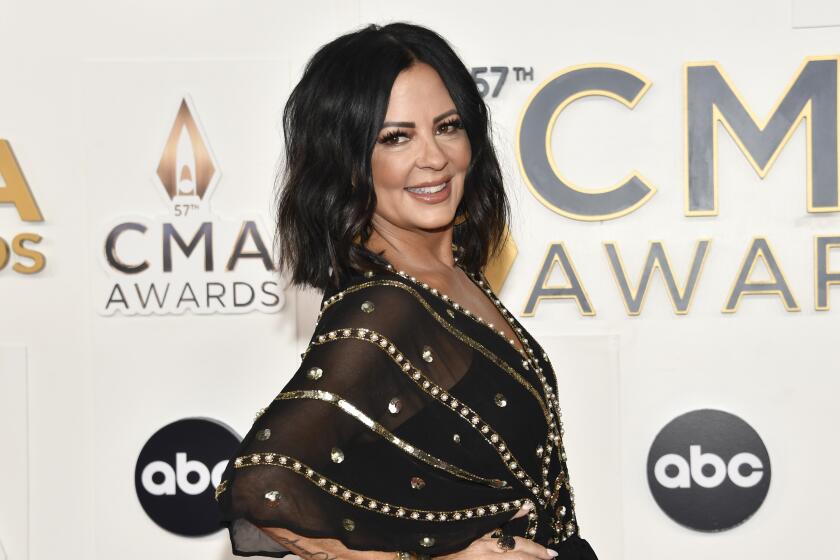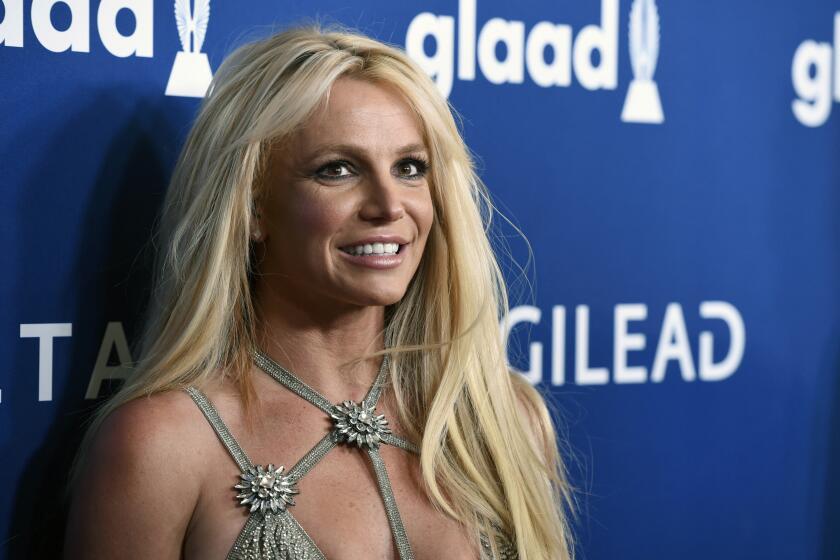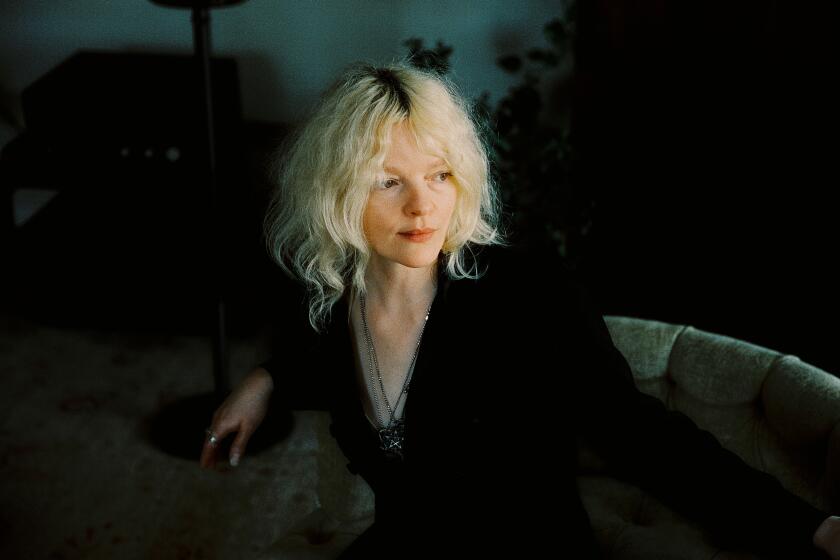Jazz Review : He Stoops to Conquer: McBride Leads on Bottom
“Bass on Top,” the title of bassist Paul Chambers’ 1957 album, pretty much sums up what usually happens when the bassist is the leader. The big upright fiddle moves out of the basement, its normal haunt, and into daylight, often climbing into its upper registers for attention.
That’s not the case with Christian McBride. The 23-year-old bassist, who first created a sensation when he joined saxophonist Bobby Watson’s band four years ago, sticks to the bottom. And isn’t bottom what the bass is all about?
Fronting his quartet at the Hyatt Newporter’s Jazz and Pop Series on Friday, McBride led from a position of support, never seeking to upstage saxophonist Tim Warfield or keyboardist Anthony Wonsey and relying on his instrument’s lower range in solo turns.
*
While even the distinguished Ron Carter employs a high-pitched instrument, the piccolo bass, on his solo outings, McBride works more in the style of his inspiration, Ray Brown, using the bass’ deep, woody resonance to tell his story.
*
Still, McBride tailors his material to fit the character of his instrument. Strong rhythms predominated, giving the bassist a chance to show his pluck. The title tune from his chart-topping album “Gettin’ to It,” which McBride used to close this show, matched the funky feel of a James Brown-inspired bass line with the instrumental swing popularized by Horace Silver and Lee Morgan in the ‘60s. The combination is irresistible.
McBride didn’t hide in the shadows. He introduced the melody to “I Should Care” before turning lead duties over to saxophonist Warfield. Using his bow, he backed pianist Wonsey’s introduction to “Sitting on a Cloud” with tones that echoed the piano’s phrases. And he took an unaccompanied turn on “Alone Together,” though the effort was mostly lost behind the whine of a jet ascending out of nearby John Wayne Airport.
*
But the bassist seemed most in his element backing his band mates. As he explored the melody of “I Should Care,” Warfield recalled Joe Henderson with his reserved-volume sound and knit-purl way of interweaving lines.
Wonsey made for a nice rhythmic complement to McBride’s persistent walk, adding gospel touches to his solos and dropping in lines from “Manteca” during “Gettin’ to It.” Drummer Carl Allen was particularly adept at using his tom-toms and bass pedal, deepening the bass-heavy sound applied by McBride.
The bassist’s own solos were filled with rapid, lengthy phrases that were accented by isolated double stops. He managed to extend the drama Warfield established during “King Freddie of Hubbard,” driving full tilt into a solo that he occasionally paced with tones pulled from the upper register. But these high-pitched embellishments were the exception. Like the catfish, McBride feeds on the bottom.
Pianist Eric Reed’s trio, opening the evening, left as big an impression as the much touted headliner. Reed has been a fixture for the past several years in Wynton Marsalis’ various ensembles (he appeared with Marsalis recently at the Hollywood Bowl) and is a commanding keyboardist who can work with the intensity of McCoy Tyner or the rhythmic playfulness of Vince Guaraldi--often in the same tune.
Backed by drummer Ralph Penland and bassist Ben Wolfe (also a veteran of the Marsalis group), Reed worked out on a mostly original program that highlighted his composing as well as playing skills.
Adept at swing tempos (“The Swing and I”) and funk-paced numbers reminiscent of Les McCann (“Felix the Cat”), Reed provided just the right amount of thematic decoration and improvisational drive without busyness or overstatement. His solo on the ballad “In a Lonely Place” was touching and thoughtful, building on lyrical lines that referenced the melody as it progressed.
More to Read
The biggest entertainment stories
Get our big stories about Hollywood, film, television, music, arts, culture and more right in your inbox as soon as they publish.
You may occasionally receive promotional content from the Los Angeles Times.

